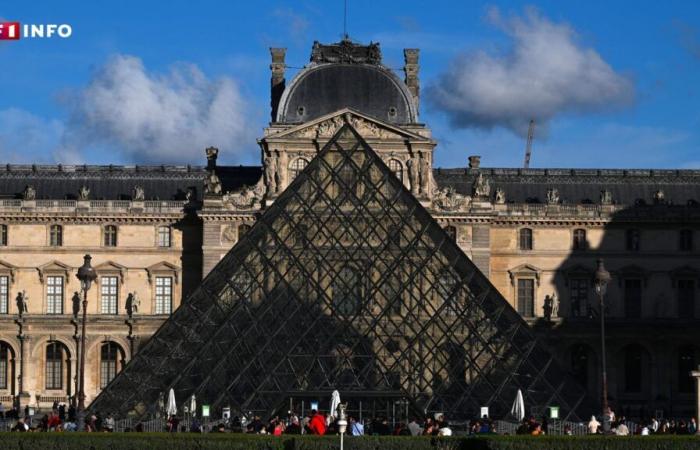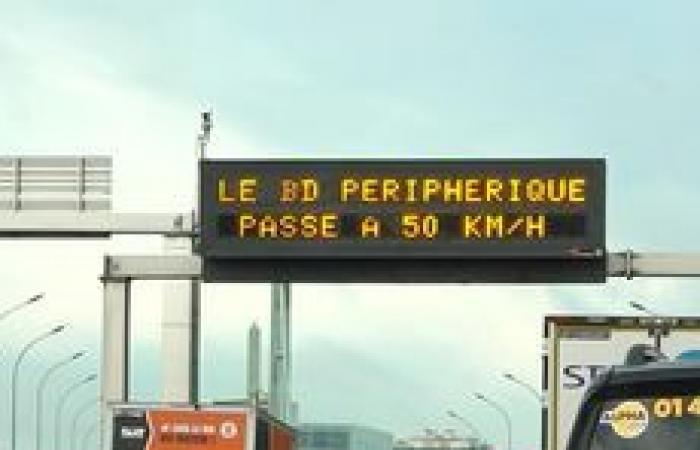The limited traffic zone (ZTL) comes into force this Monday, November 4 in Paris.
According to the municipal decree published at the end of October, it prohibits all transit traffic of motor vehicles in the first four districts of the capital.
The first checks and possible verbalizations will be preceded by a period of teaching.
Mayhem awaits for some of those traveling in the capital. After lowering the speed from 70 to 50 km/h (new window) on the ring road, the Paris town hall published, Thursday October 31, a decree establishing a limited traffic zone (ZTL) (new window) in the heart of the capital, prohibiting traffic to vehicles that only cross the first four arrondissements.
Postponed several times, the establishment of the ZTL is a campaign commitment by Anne Hidalgo to “liberate public space” occupied by cars and reduce pollution, like several large European cities (Madrid, Milan, Rome, etc.) in their central districts.
“Transit” traffic prohibited
Concretely, this area of approximately 5.5 km² will only be authorized for emergency vehicles, buses, taxis, people with reduced mobility, motorists residing or working there and all traffic “destination”namely those whose point of departure and arrival is in the sector.
The Paris town hall gave examples of reasons for going to the area and parking there:
- I live in the area
- I work there
- I make deliveries there
- I carry out a medical consultation there
- I go to a store/business
- I go to an art gallery
- I'm going to friends
- I'm going to the cinema
- I carry out a professional intervention or repair
This already criticized measure will come into force this Monday, November 4, announced to AFP David Belliard, the environmentalist deputy in charge of transport at Paris town hall.
A system of resident cards and online self-declaration
“This system will make it possible to reorganize the sharing of public space for the benefit of public transport, cycling and walking, as well as certain categories of users (visitors, residents, traders, craftsmen, taxis, public services, people reduced mobility…). It will also lead to a reduction in air and noise pollution.underlined the Paris town hall, while between 350,000 and 550,000 vehicles circulate every day in this central area of the capital.
Since the project was announced in May 2021, its scope has been the subject of difficult negotiations with the police headquarters, which co-signed the decree. Initially included, the districts of the left bank located between Boulevard Saint-Germain and the Seine were removed from the perimeter, as were the Îles de la Cité and Saint-Louis and the high quays of the right bank.
This will improve the daily lives of the 110,000 people who live in the city center.
David Belliard, deputy in charge of transport at Paris town hall.
Transport and logistics organizations from Île-de-France, united under the Gatmarif banner, asked the town hall in mid-September for details on the conditions of access and the presentation of possible supporting documents. “The control methods as well as the list of supporting documents allowing the right to travel within the limited traffic zone to be established will be defined by a joint decree of the mayor of Paris and the prefect of police”specifies the decree.
“There will be a first phase of teaching, before a second phase of control and verbalization” with a system of resident cards and online self-declaration, said Paris town hall. Deputy environmentalist David Belliard affirmed that this tool “will improve the daily lives of the 110,000 people who live in the city center of Paris”.
-
Read also
Ring road at 50 km/h: Paris town hall reveals the first lessons, from pollution to noise
Paris town hall expects a decrease “substantial” of the volume of traffic in the busiest arteries, with -30% avenue de l'Opéra and -15% on boulevard de Sébastopol, further east, according to the impact study it carried out. It also anticipates a reduction in noise and an improvement in air quality thanks to a reduction in nitrogen dioxide concentrations (-15% avenue de l'Opéra and boulevard Henri IV, -10% boulevard de Sébastopol).
In the ranks of the opposition, some like Maud Gatel (MoDem) fear that the ZTL will “endangers commercial and cultural dynamism” of the sector. “The underlying message is: ‘don’t come anymore’”estimates the leader of the centrist party at the Paris Council who castigates a “'proclamation' decision, since in reality, it will be almost impossible to control entries and exits.”







